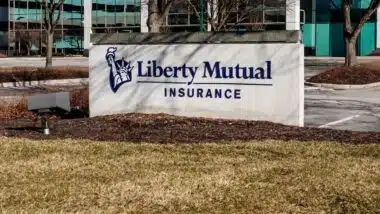
GEICO class action lawsuit overview:
- Who: Plaintiff Christopher Cude filed a class action lawsuit against GEICO.
- Why: Cude claims GEICO misleads customers about its accident forgiveness policy.
- Where: The GEICO accident forgiveness lawsuit was filed in Texas federal court.
A new class action lawsuit alleges Government Employees Insurance Company (GEICO) misleads customers about its accident forgiveness policy.
Plaintiff Christopher Cude filed the class action complaint against GEICO on Feb. 25 in a Texas federal court, alleging violations of state consumer laws.
GEICO is one of the largest auto insurance providers in the United States, known for its advertising campaigns and competitive rates. One of the features it promotes is its “accident forgiveness” policy, which is supposed to prevent a customer’s insurance premium from increasing after their first at-fault accident.
However, the new class action lawsuit alleges GEICO’s accident forgiveness policy is misleading, and that the company is unfairly raising premiums for customers who believed they were protected by this policy.
GEICO allegedly increased plaintiff’s premium
Cude says he was notified by GEICO that he had earned the accident forgiveness coverage for his vehicles, which meant the company would waive the surcharge associated with the first at-fault accident caused by an eligible driver on his policy.
Despite this assurance, Cude claims his premiums increased significantly after his wife, who is also insured under his policy, was involved in a minor fender bender in October 2024, which was their first at-fault accident.
Cude’s premium reportedly jumped from $1,392.20 to $2,663.70, a 91.3% increase, when his policy was renewed in November 2024.
When Cude contacted GEICO for an explanation, he was allegedly told that his premium did not increase but that a surcharge had been applied.
The lawsuit alleges GEICO has been using this tactic to artificially and unjustifiably increase premiums for customers who have accident forgiveness coverage, thus violating the Texas Deceptive Trade Practices Act and the Texas Insurance Code. It accuses GEICO of breach of implied covenant of good faith and fair dealing and unjust enrichment.
GEICO’s advertising and policy documents misled customers into believing that their premiums would not increase after a first at-fault accident if they had accident forgiveness coverage, the class action states.
Cude seeks to represent all GEICO customers in Texas whose premiums increased after a first at-fault accident despite having accident forgiveness coverage. The plaintiff is seeking certification of the class action, damages, fees, costs and a jury trial.
In 2024, GEICO agreed to pay nearly $2 million to resolve allegations the insurance company failed to pay title or registration transfer fees for the total loss of insured vehicles.
What do you think of the allegations in this GEICO accident forgiveness lawsuit? Let us know in the comments.
The plaintiff is represented by Bruce W. Steckler, Austin P. Smith and Paul D. Stickney of Steckler Wayne & Love PLLC.
The GEICO class action lawsuit is Cude, et al. v. Government Employees Insurance Co., Case No. 3:25-cv-00475, in the U.S. District Court for the Northern District of Texas, Dallas Division.
Don’t Miss Out!
Check out our list of Class Action Lawsuits and Class Action Settlements you may qualify to join!
Read About More Class Action Lawsuits & Class Action Settlements:















79 thoughts onGEICO class action claims insurer misleads customers on accident forgiveness
I would like to join this class action lawsuit as GEICO raised/doubled my rates after a minor accident that had no injuries nor an occupant in the other vehicle. No accident forgiveness.
Please add me I had an accident November 2025 they claimed there computer defaulted an issue but it’s my fault for not reading over it so now my vehicle is total loss and wont be getting any payments for it even for injuries I had insurance and got none
I had insurance covering everything possible on my car. It was stolen and my claim was denied.
One of GEICOs insured caused an accident and totaled my vehicle and I was told their insured did t have the mini tort on her policy. My insurance State Farm told me I had to sue GEICO to get the $3,000. This is usually an automatic payment when the other party’s vehicle was totaled it’s not an option for the insured.
GEICO RAISED MY PREMIUM TO $597+ for accident in September and before that I was paying $ 497 MNTHLY for a December 2024 accident my Wife had. My previous premiums went up almost %100-???? How many %’s even when they paid nothing for the Claims. I had been with them 22years. Went from $800 yrly to a proposed ,$597.00 monthly. Accident forgiveness, not at fault, etc. what can I do even if my numbers are off slightly the mentioned amounts are very close . I am 77 yrs old and this has been Robbery.
Geico did this to me after being involved in an auto accident where I was a passenger, not even the driver. A passenger in a Lyft car but my insurance increased. When I contacted customer service I was told the increase was due to my zip code. I had the same zip code for few years.
They did this to me. I was paying around $147 a month for 2 cars and after my accident, I am now paying $317.62 a month for ONE car.